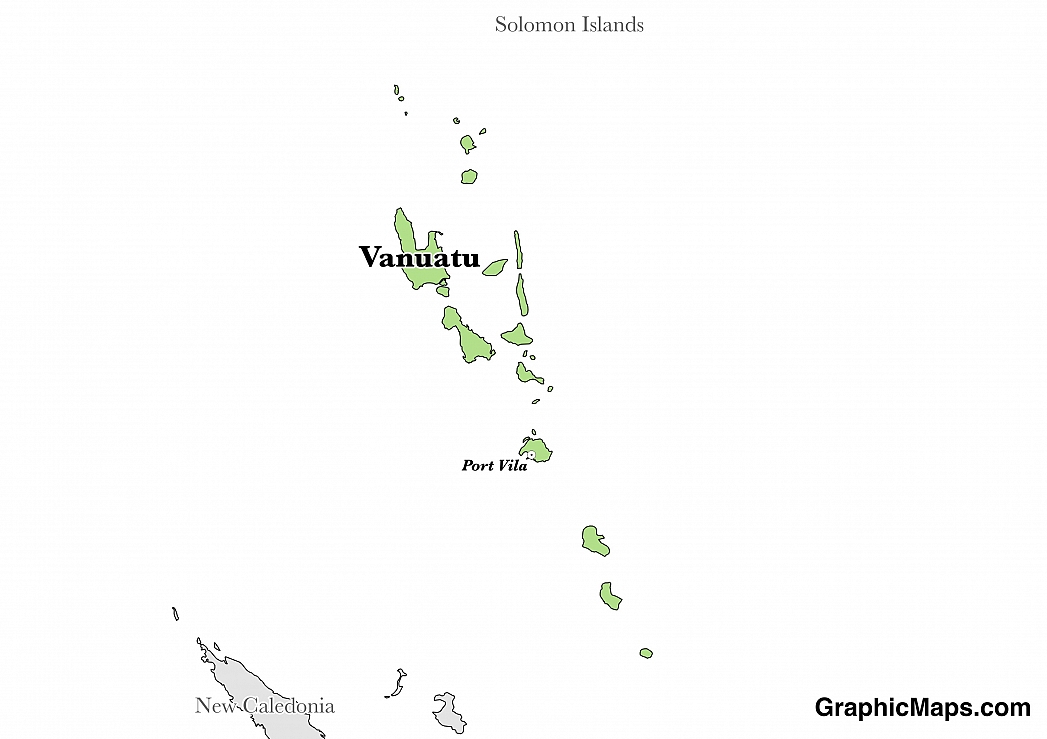Where is Vanuatu?
Located in Oceania, Vanuatu is an island nation. It has a 2,528.00 km coastline. Matthew and Hunter Islands, located east of New Caledonia, are claimed by both Vanuatu and France.
The capital city of Vanuatu is called Port Vila. The population of Port Vila, as per the 2009 census, is approximately 45,000 people denoting a 50% increase from the previous census of 1999. Port Vila has existed in some form since at least the 16th century. The city is home to important historical and cultural monuments. Port Vila is characterized by wet tropical rainforest climate with plenty of humidity throughout the year.
Read more on Vanuatu's CapitalVanuatu is an Oceanian country covering 12,189.00 km2. This makes it the 38th smallest country in the world and slightly larger than Connecticut. Its geographic coordinates are 16 00 S, 167 00 E and Port Vila is the capital city.
Its name is derived from the words "vanua" (home or land) and "tu" (stand).
Its ISO code is VU.
Geography
Vanuatu has a mean elevation of 0 m above sea level.
The climate is tropical, hot, and humid, although it is more moderate in the highlands. Its terrain is mostly mountainous and of volcanic origin.
Population
Vanuatu has a population of 277,554 making it the 181st largest in the world.
Local languages are most commonly spoken. The most common ethnic group reported is Ni-Vanuatu. The majority of the population identifies as Protestant.
There are three official languages spoken in Vanuatu, namely Bislama, English, and French. Bislama is the most widely spoken followed by French and lastly by English. Bislama is a creole language which derived from the English language. Compared to English, Bislama is grammatically easier to grasp but wordier because of the simplicity. Despite being the most widely spoken, there are more than 100 indigenous languages aside from Bislama. The name of an island determines the name of the indigenous language. Some of the native languages used in Vanuatu are considered endangered.
Read more on Vanuatu's LanguagesThe dialing code for the country is 678.
Government
Vanuatu is an independent country. It gained independence from France and the United Kindom in 1980. Its constitution was last ratified in 1980.
Vanuatu’s form of democracy is what is sometimes called the Westminster model of government. Prime Ministers serve for as long as parliament has confidence in their leadership. Presidents only serve for five years. The parliament buildings and the official residences of both the Prime Minister and the president are situated in the capital of Vanuatu, Port Vila. The members of parliament are elected into parliament by the populace every four years. Only Vanuatu citizens aged above 18 can vote.
Read more on Vanuatu's GovernmentEconomy
Factoring in Purchasing Power Parity, Vanuatu's GDP is $723,000,000.00 (USD) with $2,600.00 (USD) per capita. This makes it the 205th largest economy and its citizens the 189th richest in the world. The currency of Vanuatu is the Vatu (VUV).
Its major export partners are Japan, Turkey, and Thailand. Its main exports are copra, beef, cocoa, timber, kava, and coffee. Its major import partners are China, Australia, and Japan. Its major imports include machinery and equipment, foodstuffs, and fuels.
Flag
The current flag of Vanuatu has been in use ever since its adoption in 1980. The flag remains one of the richest and most important pieces of symbolism with relation to Vanuatu. While capturing the essence of what it means to be from Vanuatu, the flag maintains simplicity and beauty. There are subnational flags like that of Shefa and Penama Provinces among others. All of the flags maintain the colors, some even the national design on the corners, but none come close to the national flag.
Read more on Vanuatu's FlagThis page was last modified on January 17th, 2018
More on Graphicmaps
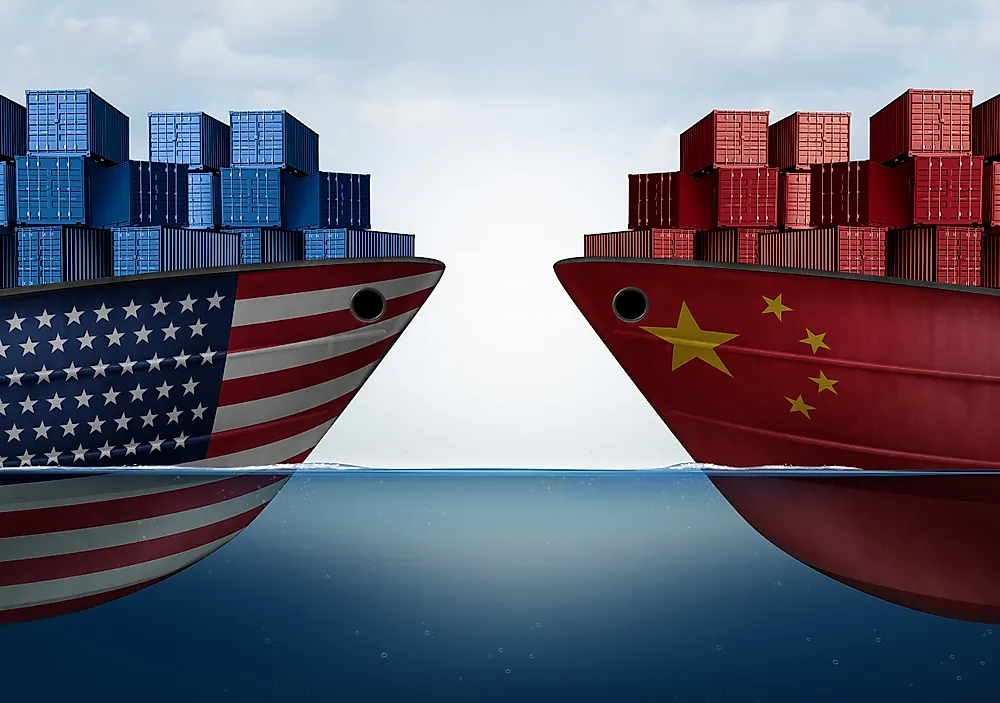
Published on 2019-11-06
What is a Trade Embargo?
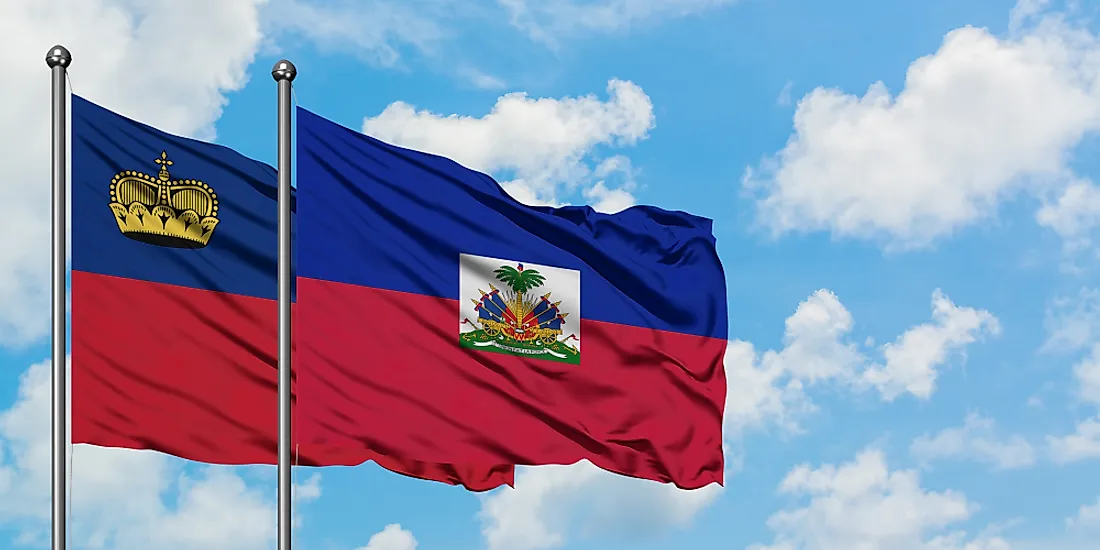
Published on 2019-11-04
Which Two Countries Used to Have the Same Flag?

Published on 2019-09-16
What Is the Only Two-Sided State Flag?
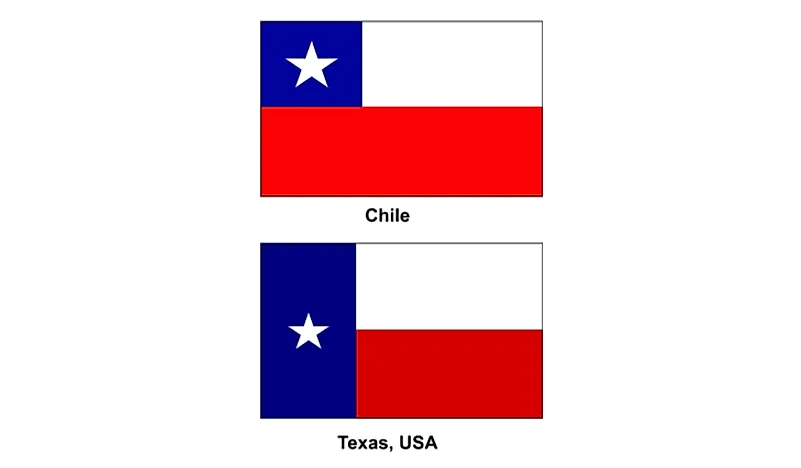
Published on 2019-09-16
Which Country Flag Looks Like the Texas Flag?
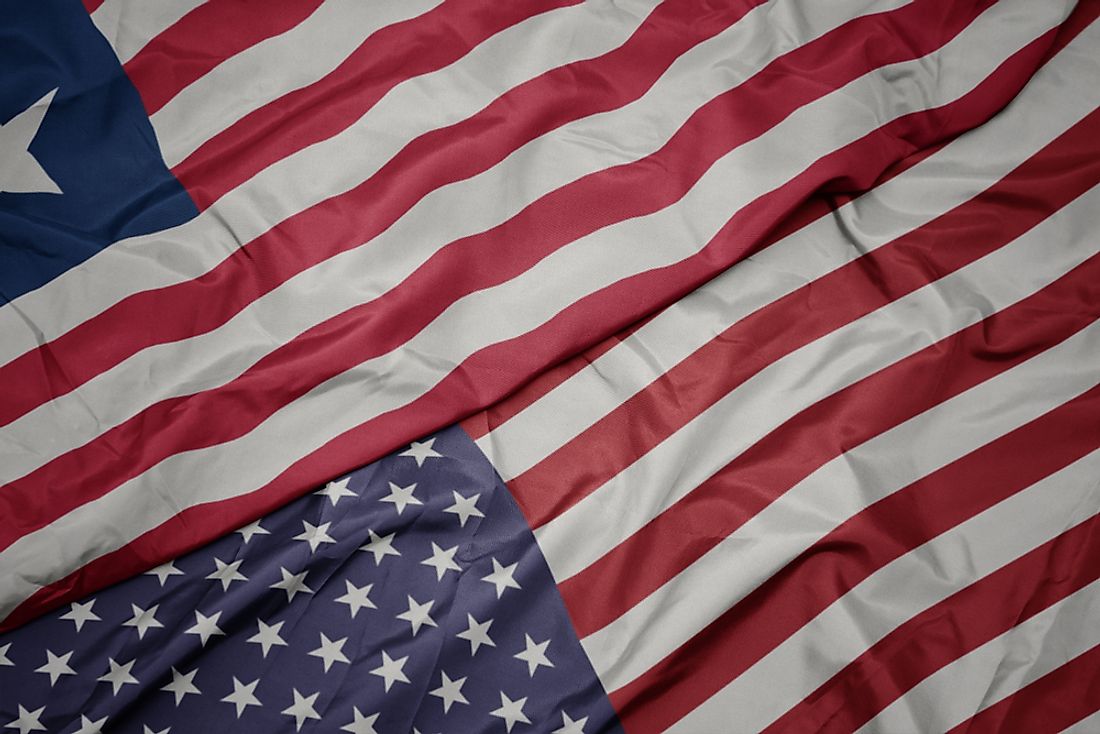
Published on 2019-08-29
Flags That Resemble the US Flag
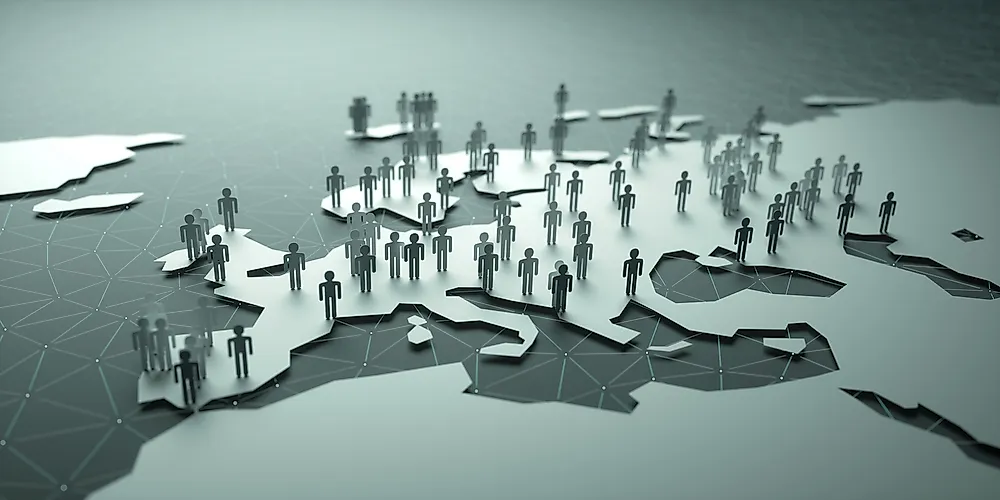
Published on 2019-08-20
